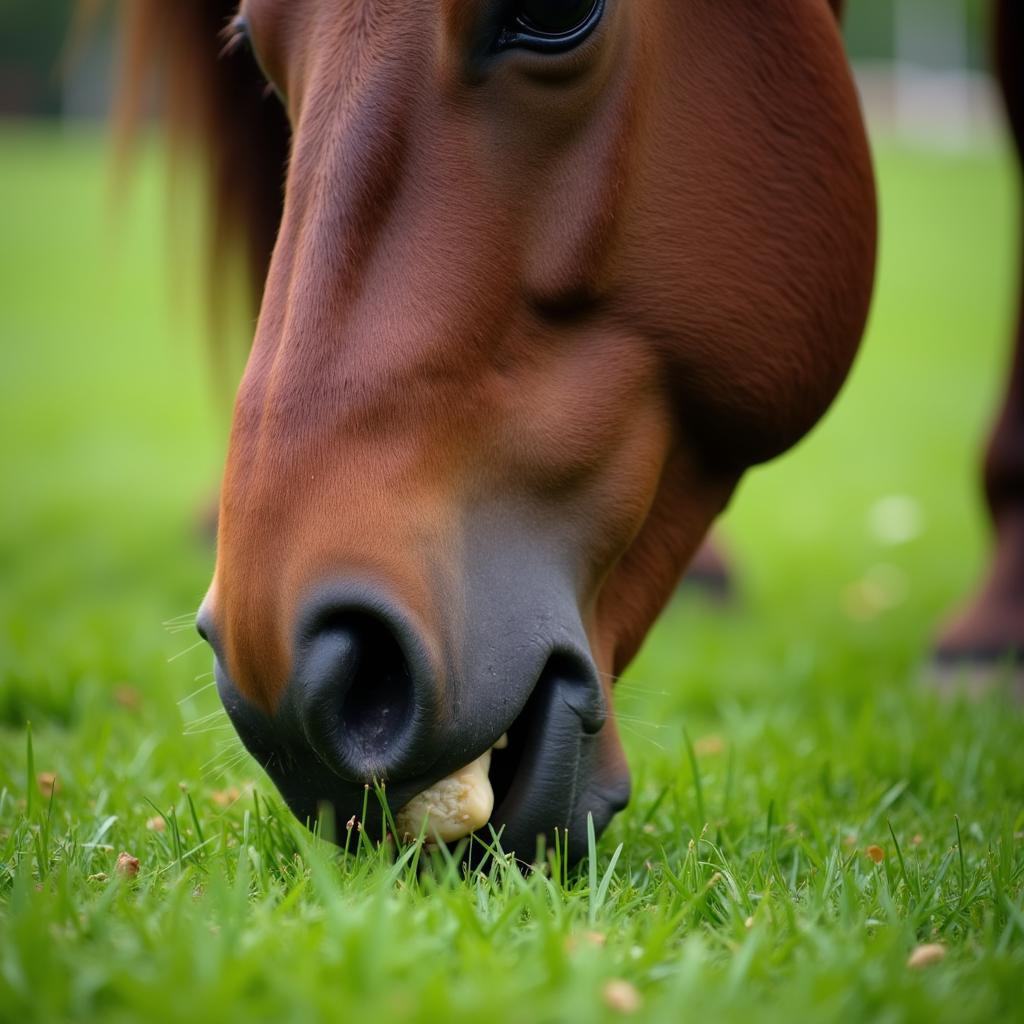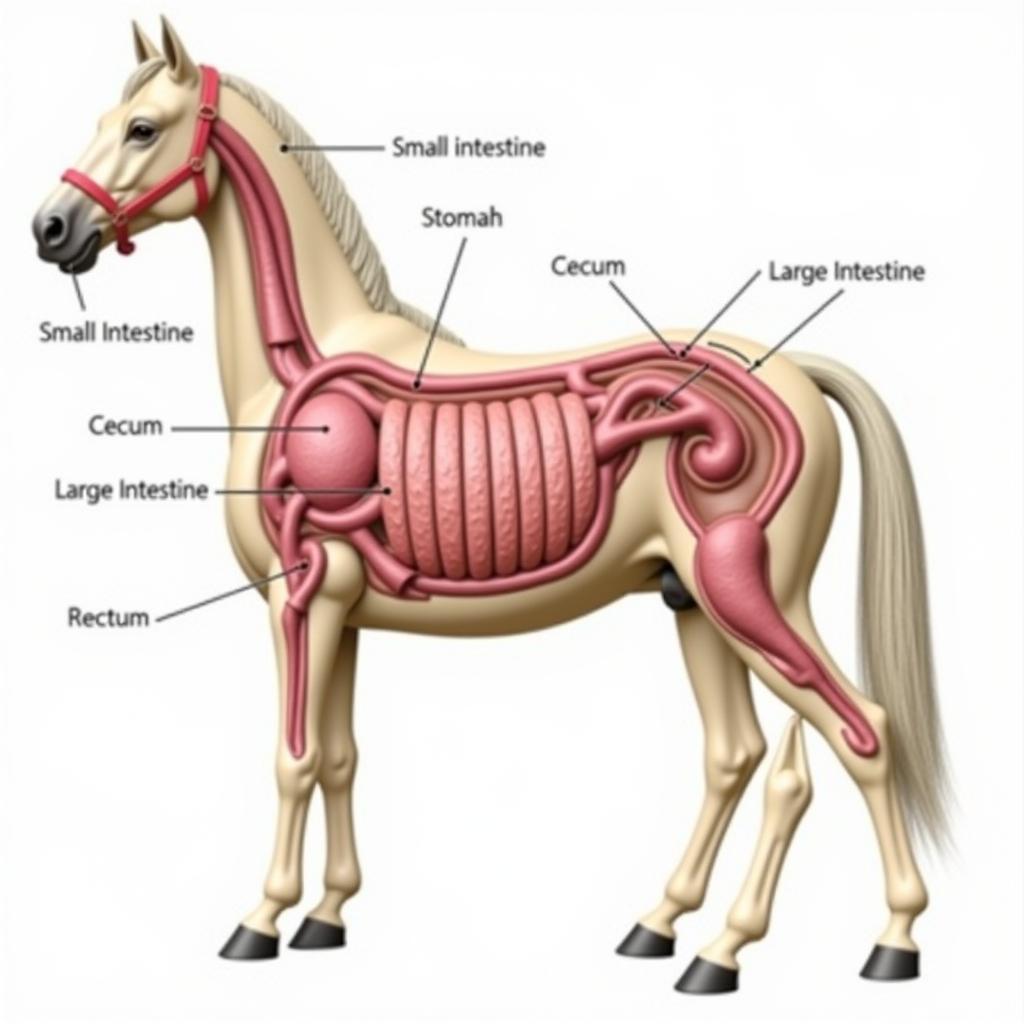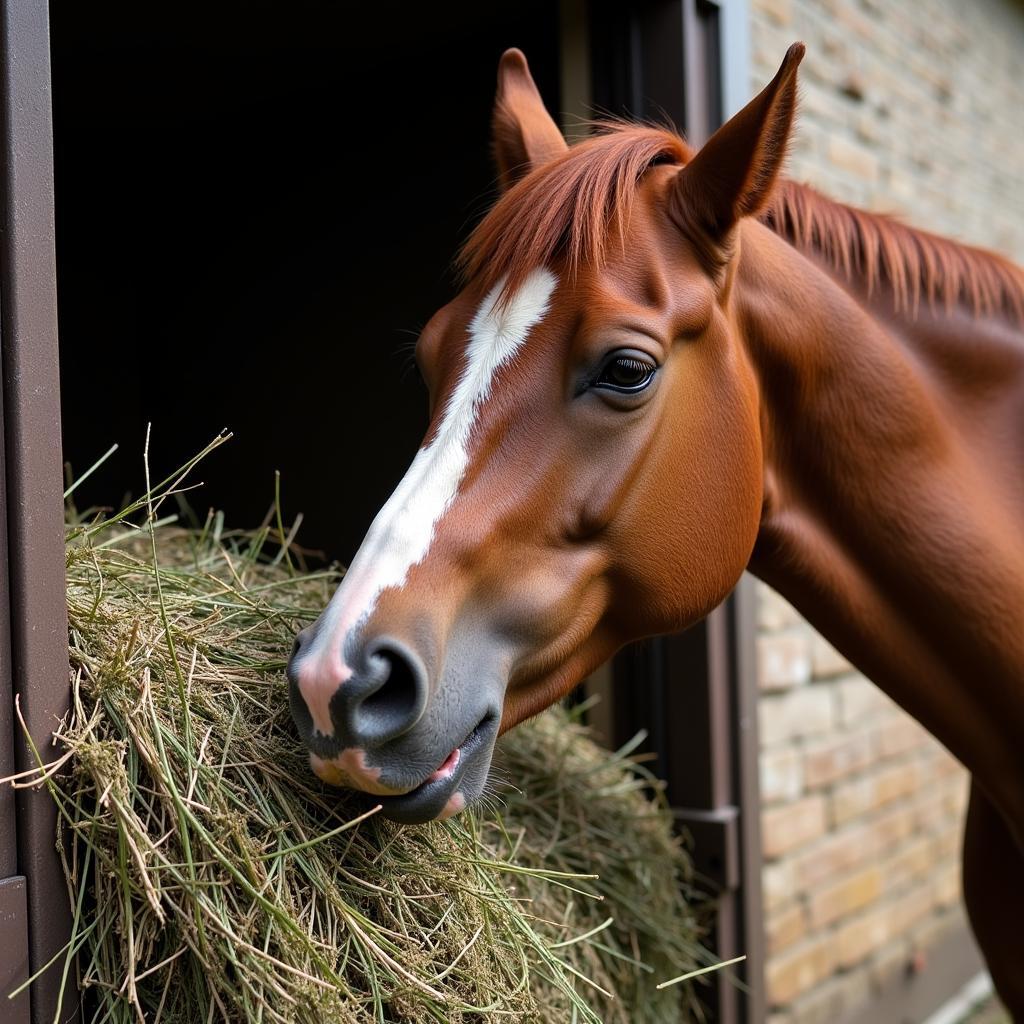Do Horses Chew Their Cud? This common question often arises due to the horse’s grazing habits and seemingly complex digestive system. The short answer is no. While they spend significant time chewing their food, horses are not ruminants like cows or sheep. Let’s delve into the specifics of equine digestion to understand why.
Understanding the Difference Between Ruminants and Non-Ruminants
The key to answering the question “do horses chew their cud?” lies in understanding the fundamental difference between ruminant and non-ruminant herbivores. Ruminants, such as cows, sheep, and goats, have a four-compartment stomach designed for fermenting plant material. This fermentation process involves regurgitating partially digested food (cud) for further chewing. This allows them to extract maximum nutrients from fibrous plants. Horses, on the other hand, are non-ruminant herbivores, also known as monogastric herbivores. They possess a single-compartment stomach, much like humans. Their digestive system, while efficient at processing plant matter, doesn’t involve cud-chewing.
 Horse Grazing in a Field
Horse Grazing in a Field
How Horses Digest Their Food: A Closer Look
While horses don’t chew their cud, they do employ a specialized digestive system that allows them to extract energy from plant material. Their large intestine houses a complex ecosystem of microorganisms that ferment fiber, breaking it down into usable nutrients. This hindgut fermentation process is crucial for extracting energy from cellulose, the primary component of plant cell walls. So, even without chewing their cud, horses can still efficiently process grass and other forages. Their digestive system is remarkably efficient, allowing them to survive on a diet primarily composed of grass and hay.
The Role of the Cecum in Equine Digestion
The cecum, a large pouch located at the junction of the small and large intestines, plays a vital role in equine digestion. This is where the majority of fiber fermentation takes place. The cecum houses a diverse population of bacteria and other microorganisms that break down cellulose and other complex carbohydrates. This fermentation process produces volatile fatty acids, which are absorbed into the bloodstream and provide a significant source of energy for the horse.
 Horse Digestive System Diagram
Horse Digestive System Diagram
Why Chewing Thoroughly is Important for Horses
Although they don’t chew cud, thorough chewing is still essential for horses. Grinding their food into smaller particles increases the surface area available for digestive enzymes and microorganisms to act upon. This enhances the efficiency of nutrient absorption. Proper chewing also helps prevent choking and other digestive issues. Observing a horse’s chewing habits can provide insights into their dental health and overall well-being.
Do Horses Chew Their Cud? Common Misconceptions
The question “do horses chew their cud?” often arises from observing horses re-chewing their food. This behavior, however, is different from rumination. Horses sometimes re-chew food that wasn’t initially chewed thoroughly, particularly if they’re eating quickly or are distracted. This is not the same as regurgitating cud, as seen in ruminants. It’s simply a second attempt to break down the food into smaller, more manageable particles.
 Horse Chewing Hay
Horse Chewing Hay
Conclusion: Horses and Their Unique Digestive System
So, do horses chew their cud? The answer is a definitive no. Horses have a unique digestive system adapted to a herbivorous diet, but they do not possess the multi-compartment stomach and cud-chewing behavior characteristic of ruminants. Understanding this distinction is crucial for proper horse care and management. By appreciating the intricacies of equine digestion, we can better provide for their nutritional needs and ensure their overall health.
FAQ:
- What is the difference between a ruminant and a non-ruminant?
- How does a horse’s digestive system work?
- What is the role of the cecum in a horse’s digestion?
- Why is chewing thoroughly important for horses?
- What are some common digestive problems in horses?
- How can I ensure my horse’s digestive health?
- What should I feed my horse to support optimal digestion?
Need further assistance? Contact us at Phone Number: 0772127271, Email: [email protected] or visit us at QGM2+WX2, Vị Trung, Vị Thuỷ, Hậu Giang, Vietnam. We have a 24/7 customer support team.